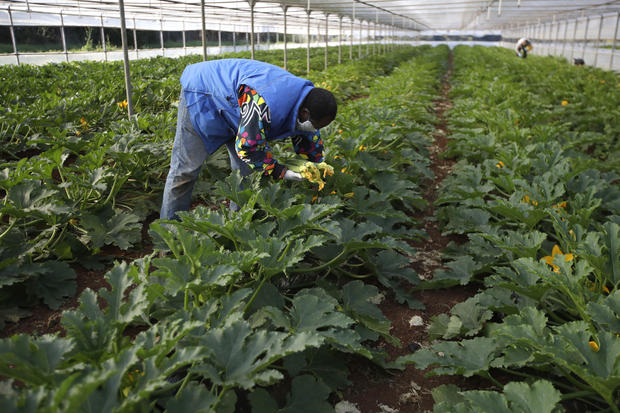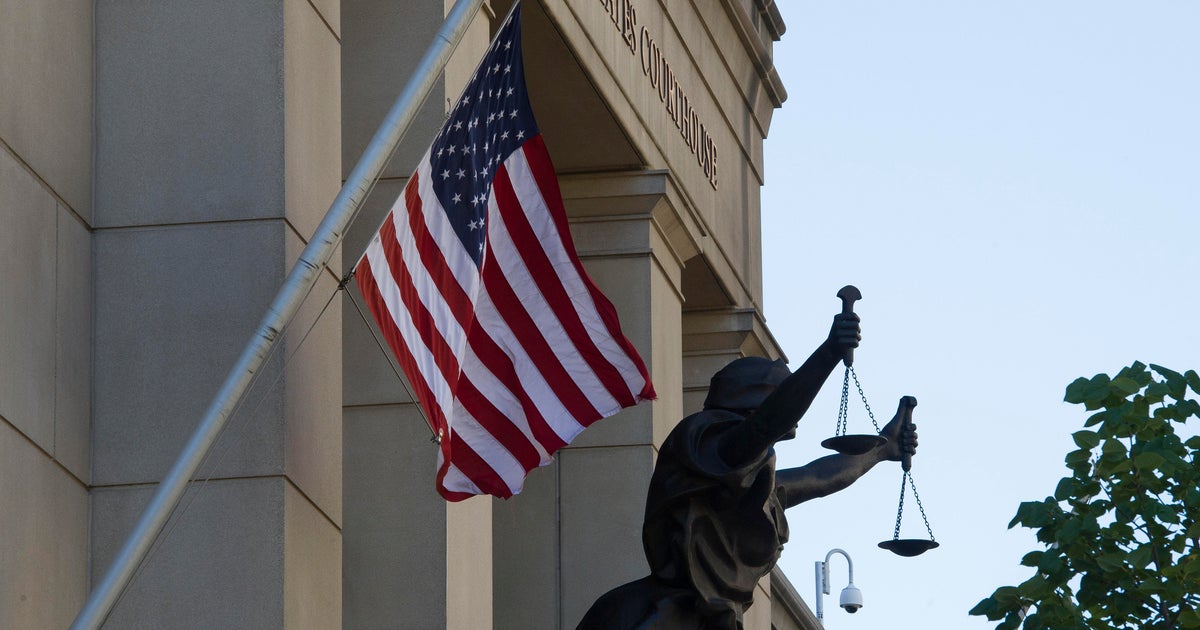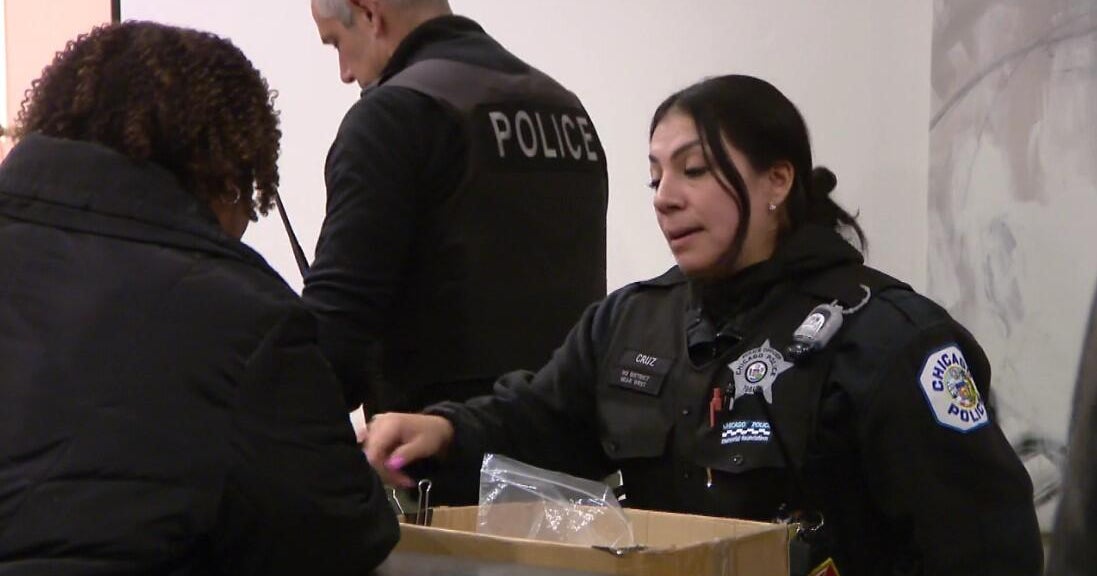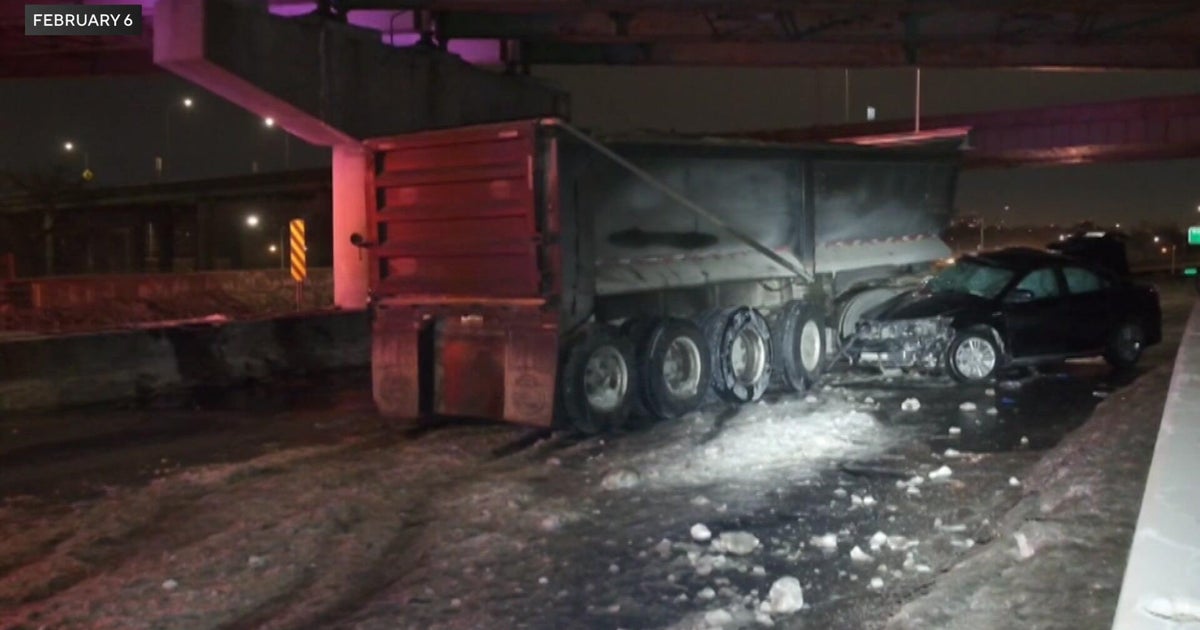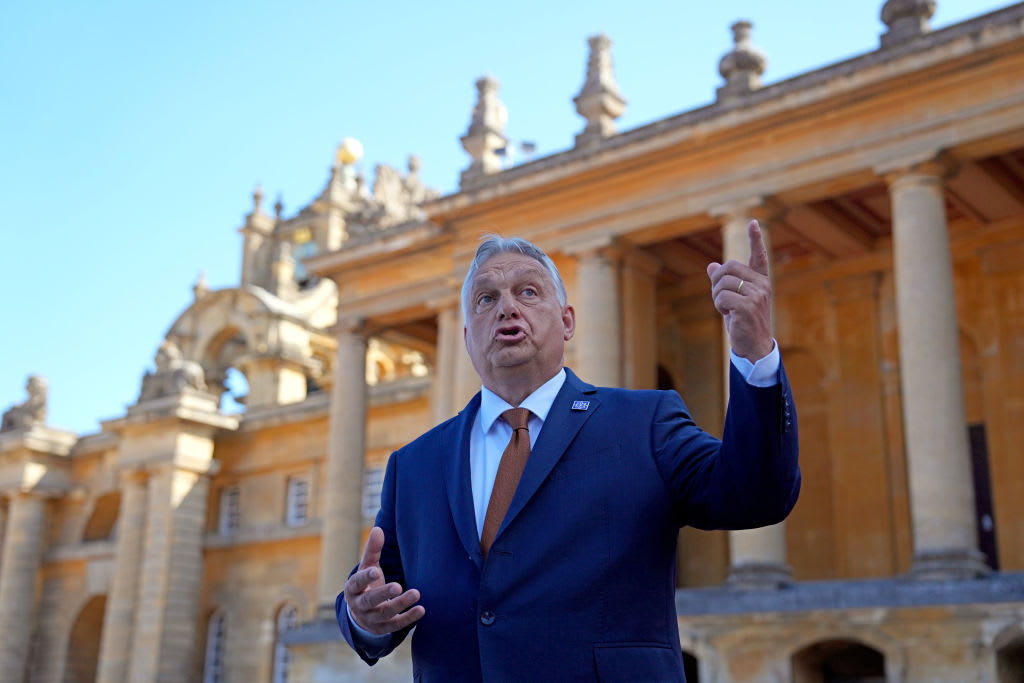Coronavirus crisis sees Italy plan to grant 500,000 undocumented migrants work permits
Rome — Italy will give temporary work permits to more than half a million undocumented migrants deemed essential to picking crops and caring for the elderly amid the country's coronavirus lockdown as part of a stimulus package agreed late Wednesday.
"We have worked on this decree knowing that the country is in great difficulty," Prime Minister Giuseppe Conte said after a cabinet meeting.
For more than two months, stay-at-home orders have prevented seasonal laborers from Eastern Europe traveling to Italy to work in farming. The glut of farm hands has fueled fears of food shortages and led the agriculture industry to rely on an estimated 500,000 illicitly hired, unregistered migrants, largely from North Africa, as spring crops ripen in the fields.
"The food on our table comes from these fields. Now we must hand over those rights which have been denied to those who work in them," said Peppe Provenzano, minister for the south of Italy.
Agriculture lobbies had warned that Italy risked wasting massive amounts of produce if nobody was there to pick it, exacerbating the fallout of a shutdown already costing the food sector more than $7.5 billion in the country.
The measure approved Wednesday was proposed by Agriculture Minister Teresa Bellanova as part of a long-delayed stimulus package of nearly $60 billion meant to help Italy's beleaguered businesses and families weather the pandemic and lockdown.
"This decree provides the prerequisites so that this phase of reopening can immediately offer the prospect of an economic and social recovery," Conte told journalists.
Proponents of the measure say it will advance public health interests, too, as migrants won't need to hide from authorities any longer in squats and camps where poor hygiene conditions make fertile ground for coronavirus clusters.
The move came after Pope Francis decried "farm hands exploited in the countryside," saying "dignity should be given to work," with proper pay and safe conditions.
The measure also applies to about 100,000 undocumented migrants who assist the elderly — the demographic most severely at risk in an outbreak that has already killed 31,106 people in Italy. It's the third-highest recorded death toll in the world, after the United States and Britain.
Nonetheless, the decree sparked a major controversy in a country whose gross domestic product (GDP) is expected to shrink by more than 9% and where unemployment is projected to reach 12.7% by the end of the year, according to the International Monetary Fund.
Opposition leader Matteo Salvini, of the nationalist League party, blasted the decision in a Twitter post, saying: "Why should we ever reward those illegals and those who exploit them when there are so many Italians and legal migrants looking for a job?"
The hardline position was previously backed by the anti-establishment 5-Star Movement (M5S), which shares power with the center-left Democrats in a coalition government. But M5S dropped its opposition as it risked toppling the fragile coalition under Prime Minister Conte.
Located just a few hundred miles from the coast of North Africa, Italy has been by far the largest European destination for migrants setting sail from Libya and Tunisia in the past decade.
More than 6 million migrants were living in Italy in 2019. More than 500,000 of them were undocumented, according to an annual report by the Ismu Foundation, a think-tank focused on migration issues.
The stimulus package, originally promised last month, takes immediate effect, and comes on the heels of an initial $27 billion package introduced in March. It includes a mix of tax cuts and grants to help businesses survive the economic downturn, while also aiming to help families with subsidies for childcare, and to boost the ravaged tourism sector.

